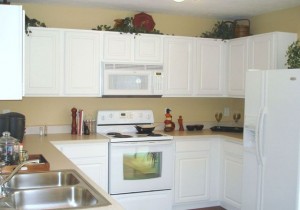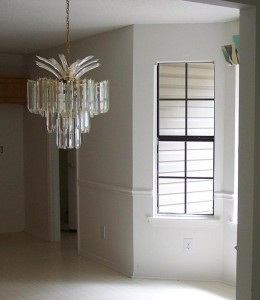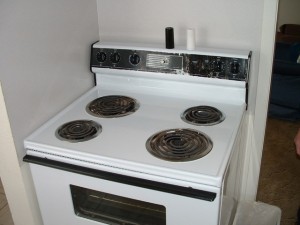When you purchase a house, in most cases you are not only buying the bricks and mortar but also fixtures and chattels. Offers will typically identify the fixtures and chattels which are included or excluded from the Agreement. What is the difference between the two and how can prospective buyers identify each?
Chattels vs Fixtures
There is much misunderstanding between Vendors and Purchasers when it comes to Chattels and Fixtures.  The broad definition of a fixture is an item which is “permanently affixed” to the real property. Clearly the bricks and mortar are affixed permanently. Nearly everyone agrees that the plumbing fixtures, toilets and bathtubs are fixtures. But what about appliances?
The broad definition of a fixture is an item which is “permanently affixed” to the real property. Clearly the bricks and mortar are affixed permanently. Nearly everyone agrees that the plumbing fixtures, toilets and bathtubs are fixtures. But what about appliances?
Furnaces are generally considered fixtures as they are installed in such a way as they cannot be easily removed and are not intended to be removed. The law is pretty clear that refrigerators and stoves are generally not fixtures as they are usually easy to remove and are arguably not intended to be “permanently affixed”.
However, this might not be true for all appliances such as built in ovens, cooktops and dishwashers. Lighting is considered a fixture and is therefore part of the real estate. Built-in book cases or entertainment units are  generally fixtures, but not everyone agrees. Many vendors feel if they installed a unit (such as a bookcase) themselves, then it can be taken by them when they leave. Likewise that expensive dining room chandelier, which the vendors bought and installed, might be removed by the vendor under the assumption that if they installed it, they can take it with them.
generally fixtures, but not everyone agrees. Many vendors feel if they installed a unit (such as a bookcase) themselves, then it can be taken by them when they leave. Likewise that expensive dining room chandelier, which the vendors bought and installed, might be removed by the vendor under the assumption that if they installed it, they can take it with them.
As you can see there is a lot of room for disagreement and misunderstandings when it comes to this subject. The only way to eliminate confusion and disagreements is to ensure that if something in the home looks like it could easily be removed and you (as purchaser) want it, you should include a provision in the offer specifying that it is to be included.
Is everything in “working order”? Warranties regarding appliances and equipment
Often an Agreement will include a statement that the Seller ‘warrants’ the fixtures and chattels to be in good working order on closing. What happens if something is not working when you move in? What are the buyer’s legal rights, when such an issue arises?
The answer to this question depends in large on measure on the wording of any warranty in the Agreement. In the standard OREA clause, the onus is on the purchaser to prove that the defect occurred prior to closing. This can be a little tricky unless you do a pre-closing inspection on the day of closing – a provision that is rarely included in an agreement. The purchaser could consider including a time limited warranty that would warrant that equipment would work for a period of time after closing eg: 30 days. Although this is not a clause that I ever see included in Agreements, I see no reason why it should not be used in appropriate cases. Failing that, purchasers will have to be diligent in inspecting the equipment prior to closing and hope for the best. Obviously a good professional home inspection should bring to light any serious defects to minimize the risk of unpleasant surprises.
That’s not the stove or chandelier that was here before!
Another issue that can arise is when the Vendor wrongfully replaces fixtures, equipment, or appliances with other less desirable items. It’s a good idea to record the serial numbers of all equipment being included and photograph them to have appropriate evidence to prove that a “switch” was made.
photograph them to have appropriate evidence to prove that a “switch” was made.
Unfortunately, if this type of problem arises you can make a request to the vendors to honour the warranty or replace the switched items. However, given the value of such items, if the vendor does not comply, it is generally not economical to proceed to take legal action.
